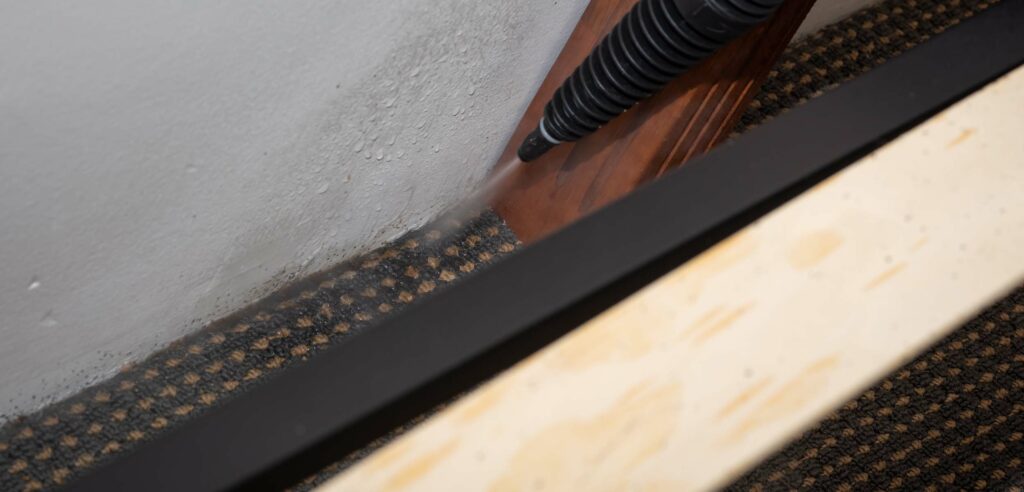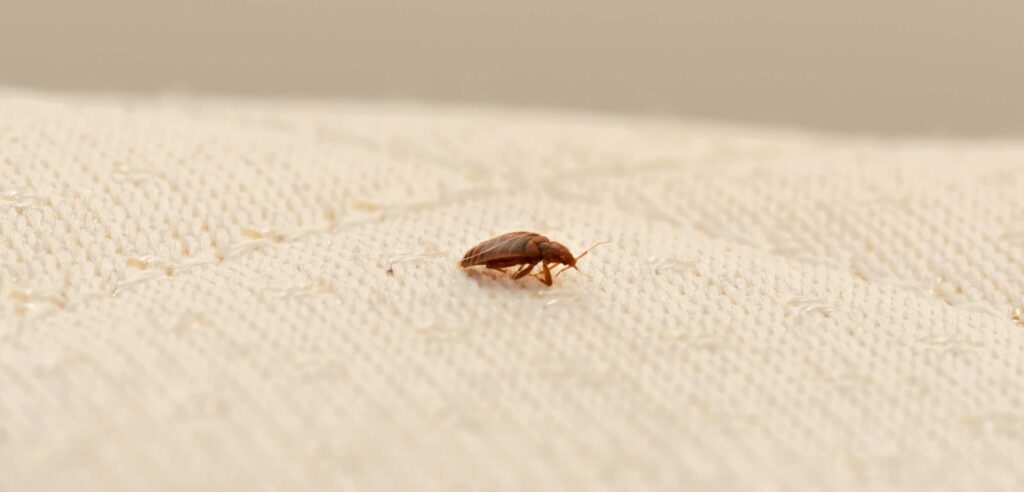There are lots of myths about bed bugs out there. That they’re invisible, that bed bugs spread diseases…the list goes on. Bed bugs are about the size of a grain of rice and can be found in the cracks and crevices of homes. But not all the urban legends about bed bugs are true.
Here are some things about bed bugs you might not know that will help you understand why these pests love beds! If you think you have a bed bug problem, it’s always best to have it dealt with swiftly. Professional bed bug removal is usually the best way to go.

1. Bed bugs are everywhere
If you think that bed bugs only thrive in hot climates or dirty environments, you’re wrong! Bed bugs exist across North and South America, Europe, Asia, and Africa. Almost any city in the world is comfortable enough for bed bugs to survive.
The cleanliness of a room does not determine if bed bugs will live there. They’re attracted to warmth and humans, not dirt and grime. You can even find bed bugs in a 5-star hotel!
When we say bed bugs are everywhere, we mean they prosper in places besides your mattress. Bed bugs can also rest in furniture, pillows, cushions, clothes, and carpets! So it’s not shocking for bed bugs to appear in any town around the globe.

2. Bed Bugs Like to Travel
Bed bugs can crawl more than 100 feet per night and often sneak into luggage to travel even further. Bed bugs have been found in all 50 states in both urban and rural regions.
If you head to a destination with existing bed bugs, they can hitch a ride back to your hometown. Bed bugs can rest in your clothes or your suitcase during the journey back.
If you think you’ve been exposed to bed bugs on holidays, follow these steps to ditch the hitchhiking pests.

3. Bed Bugs Drink Your Blood!
Why do bed bugs bite? Because they drink the blood of animals. These tiny vampires will take your warm mammalian blood as dinner when other food sources aren’t available. When you rest up for the night, it’s like a delivered meal for bed bugs.
Adult bed bugs only feed about once per week. But a bed infested with dozens of these pests will mean you’re being bitten frequently by hungry bugs.

4. Bed Bug Bites Aren’t Always Obvious
If you’re one of the lucky ones (or unlucky ones), it’s easy to identify bed bug bites. Typically, they leave red, itchy bites on their hosts. It’s common to find several bite marks in groupings, but these spots can take up to 14 days to show.
For some people, the visual symptoms of bed bug bites are not so obvious. Not every person exhibits these red, swollen bumps. Physically seeing these pests in your bed or pillows is one way to know.
Other signs that you might have bed bugs include:
- The shed exoskeletons
- Rust-colored blood spots on sheets.
- A sweet, musty odor.

5. Bed Bugs Don’t Spread Disease
It’s a misnomer that bed bugs spread viruses or other diseases. Studies have shown that bed bugs do not carry diseases from one host to another. Bed bugs cannot make you sick from their bites or mere presence.
But even though bed bugs have no risk of spreading disease, they’re still icky and a pest. So don’t let this fact deter you from having bed bugs professionally removed once you know they are present.

6. Bed Bugs Are Attracted to Carbon Dioxide
Besides your warmth, bed bugs are also attracted to carbon dioxide. This helps explain why the surface you lie still on and exhale for several hours (your bed) is a common place to find these pests.
There’s not a lot you can do about deterring bed bugs once they’ve made a home in your bedding or other materials. Obviously, you can’t stop breathing! But know that the cleanliness of a room or mattress has nothing to do with attracting this pest. Bed bugs are after your human qualities.

7. Bed Bugs Are Tough
Bed bugs are made to last. They drink nearly seven times their own weight in blood and can go long periods without feeding, which is handy when they’re on the go.
While some insects can’t stand the heat, bed bugs certainly can. They can survive in temperatures up to 122°F, which means they’ll last through hot summers.
To make matters worse, scientists have realized that bed bugs are building up resistance to some popular over-the-counter insecticides. If you have a bed bug infestation, call a local pest control company to remove them as quickly as possible.


